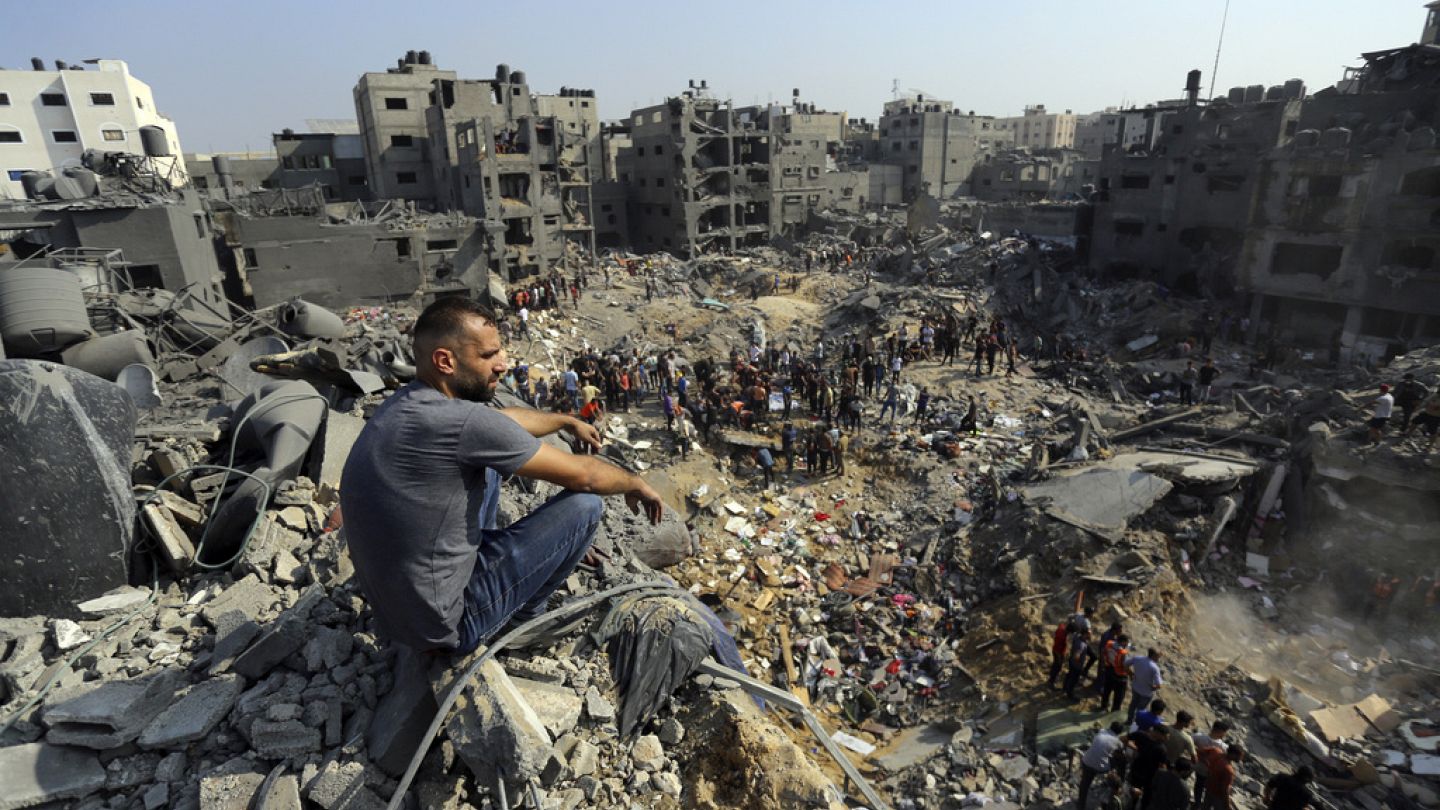Inside the one place left for Gaza's population to go, civilians live among the dead
With few roads and little fresh water, al Mawasi has never been viewed as suitable for habitation, and aid groups argue that Israel - as the occupying power - has continually failed to consider the needs of those now living there.

In Gaza there is only one place left for civilians to go.
It is called al Mawasi, a collection of fields, sand dunes and broken buildings that have been overwhelmed by a great blanket of humanity.
According to the Israel Defence Forces (IDF), around 1.9 million have squeezed themselves into this territory.
Israel has designated it a 'humanitarian area' where civilians can find respite from the fighting - but international aid agencies argue that al Mawasi is neither humane - nor safe - and represents a major breach of international law.
With few roads and little fresh water, this coastal strip has never been viewed as suitable for habitation, and aid groups argue that Israel - as the occupying power - has continually failed to consider the needs of those now living there.
Our team found dozens of new arrivals to al Mawasi erecting basic shelters within the confines of an operational cemetery.
Living with the dead they told us, was their only option.
"Where else would we go?" said one.
"Al Mawasi is full. Here we are with dead friends and family - and in any case - we'll be down there with them soon."
The graveyard smells of decomposing bodies and the children find it hard to sleep, but there's still some room around the gravestones.
Our team saw one tent-like structure with guy lines strapped to a series of stone slabs.
"On a normal day before the war, this was a scary place... we'd walk by as quickly as possible. Can you imagine having to sleep in the middle of it?" one graveyard resident said.
Despite the overcrowding, there are some parts of al Mawasi where people simply cannot countenance life.
Lacking any sort of civic infrastructure, huge piles of garbage and pools of untreated sewage now dominate parts of the territory.
As a result, people are getting sick.
"They get all these diseases, rashes, insect bites, we don't even know what insects they are. The way the skin swells, we've never seen it," said a man called Ibrahim.
Scott Anderson is the head of the UN's mission in Gaza, otherwise known as UNRWA.
He said it is difficult to believe what is going on.
"It's so horrific. It's almost like a science fiction movie, a post-dystopian apocalyptic science fiction set… there's piles of rubble, piles of garbage on passable roads, roads with sewage running down them. And it's such a horrific situation for everyone that's here just trying to survive," he said.
They make bonfires at night to keep the mosquitos at bay but they can't do anything about the sewage - and nothing it seems, about disease.
Netanyahu says Israel's aggressors face 'heavy price'
Traces of polio have been found in the water and UNWRA says the risk of cholera outbreak is high. Furthermore, everyone's got problems with their skin.
Mustafa Abu Luli and his family live in a tent next to a great pile of rubbish.
His children have rashes that cover their entire bodies.
"Here's one of the kids, look at what's happened, look at how she is suffering, no one can help me. No one can give me any ointment," he told us.
"People say they're going to remove the garbage, the dead donkeys and the dead horses, but no one's done anything yet!"
The UN chief in Gaza told us that he had just briefed the British Foreign Secretary David Lammy and the Attorney General Richard Hermer about the desperate reality of al Mawasi.
He said he hoped Mr Lammy would use the information "to advocate with the government of Israel".
Yet the only thing that will make a demonstrable difference is a ceasefire, and it needs to happen soon because life in al Mawasi has become intolerable.
-SKY NEWS






